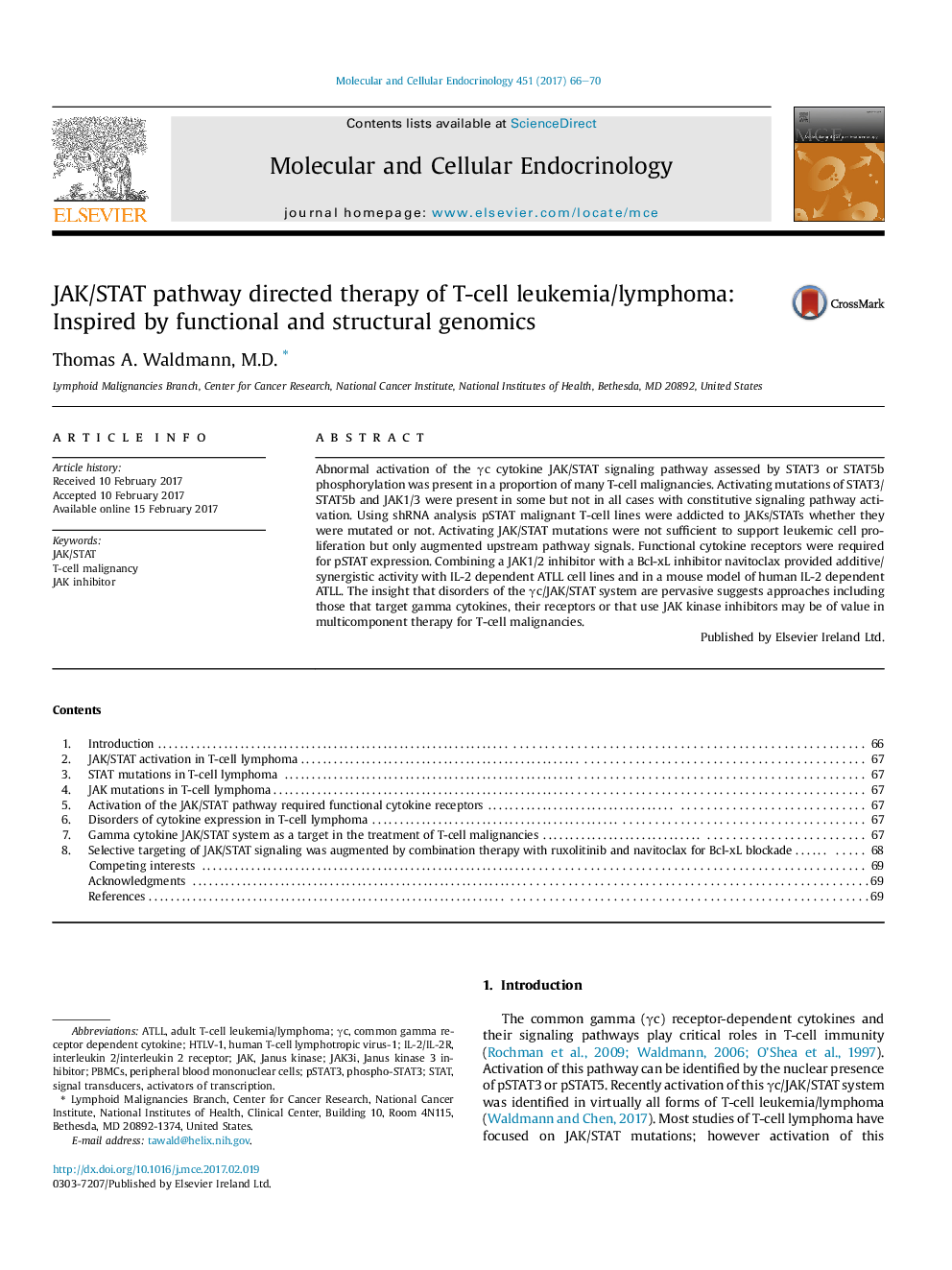| Article ID | Journal | Published Year | Pages | File Type |
|---|---|---|---|---|
| 5534139 | Molecular and Cellular Endocrinology | 2017 | 5 Pages |
â¢Abnormal activation of JAK/STAT signaling is present in many T-cell malignancies.â¢Mutations of STAT3/STAT5b and JAK1/3 are common.â¢JAK/STAT mutations are insufficient but augment upstream pathway signals.â¢JAK kinase inhibitors may be of value in therapy of T-cell malignancies.
Abnormal activation of the γc cytokine JAK/STAT signaling pathway assessed by STAT3 or STAT5b phosphorylation was present in a proportion of many T-cell malignancies. Activating mutations of STAT3/STAT5b and JAK1/3 were present in some but not in all cases with constitutive signaling pathway activation. Using shRNA analysis pSTAT malignant T-cell lines were addicted to JAKs/STATs whether they were mutated or not. Activating JAK/STAT mutations were not sufficient to support leukemic cell proliferation but only augmented upstream pathway signals. Functional cytokine receptors were required for pSTAT expression. Combining a JAK1/2 inhibitor with a Bcl-xL inhibitor navitoclax provided additive/synergistic activity with IL-2 dependent ATLL cell lines and in a mouse model of human IL-2 dependent ATLL. The insight that disorders of the γc/JAK/STAT system are pervasive suggests approaches including those that target gamma cytokines, their receptors or that use JAK kinase inhibitors may be of value in multicomponent therapy for T-cell malignancies.
